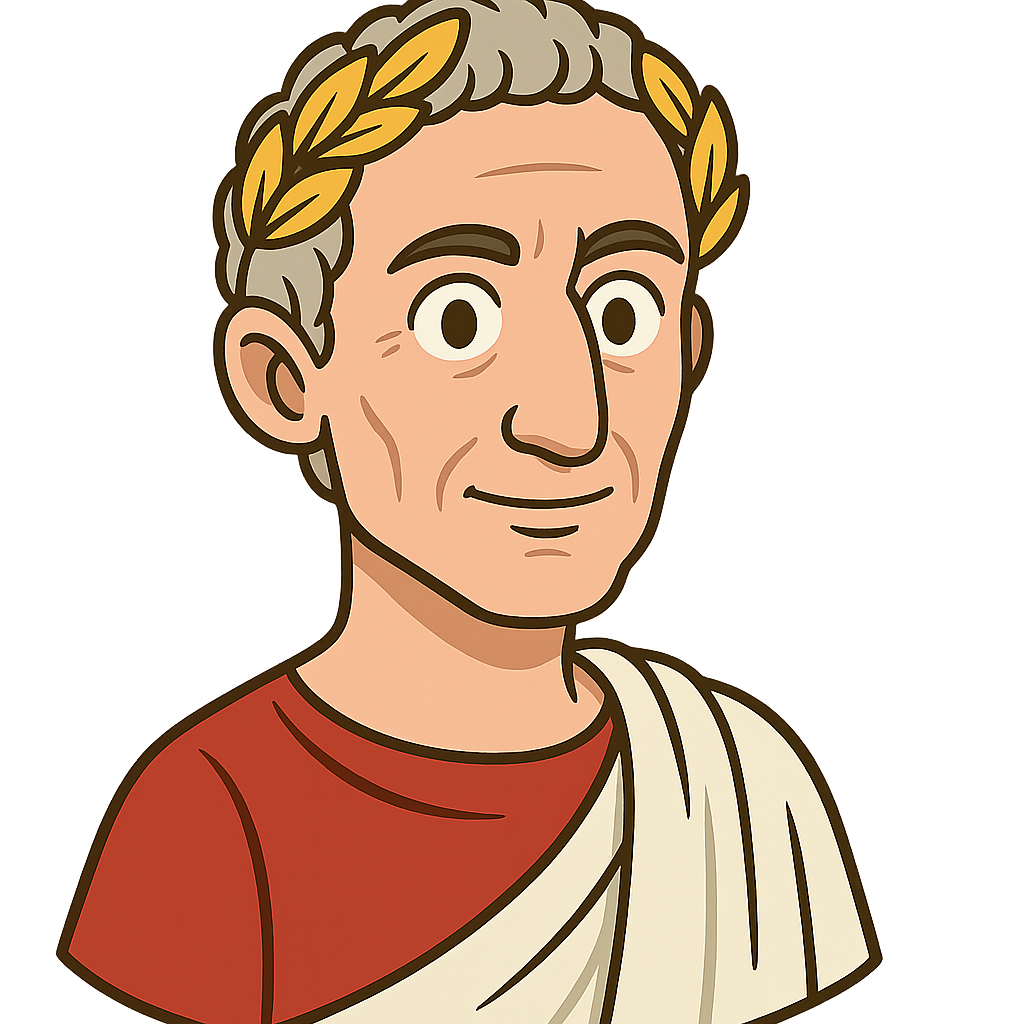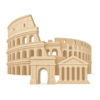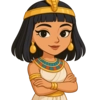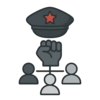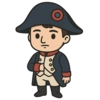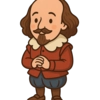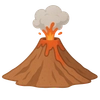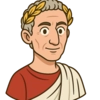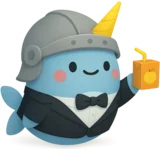A Biography of Julius Caesar
Hello! My name is Gaius Julius Caesar. I was born a very long time ago, in the year 100 BCE, in a city you've probably heard of: Rome! Growing up, Rome was a bustling place, which means it was always full of energy and people. Imagine streets packed with merchants selling their goods, towering temples dedicated to our gods, and the sounds of chariot wheels clattering on the stone roads. My family was from a group called the patricians, which meant we were important, but we weren't the richest or most powerful family by any means. I lived with my mother, Aurelia, and my father, who was also named Gaius Julius Caesar. As a boy, I loved to read and learn. I was especially fascinated by stories of great leaders and generals from the past, like Alexander the Great. I would imagine myself leading brave Roman soldiers into faraway lands. I dreamed that one day, I too would lead armies, win great victories, and help Rome become even stronger and more magnificent than it already was. That dream became the fire inside me that pushed me to always do my best.
When I became a man, I knew I had to join the army to achieve my dreams. Being a soldier was hard work and often dangerous, but I was determined. I learned quickly and wasn't afraid of a challenge, so I soon began to rise through the ranks, becoming a leader myself. My greatest military adventure began in 58 BCE when I led my legions into a vast, wild land to the north called Gaul, which is near where modern France and Germany are today. For nearly ten years, my soldiers and I marched through dense forests, crossed wide rivers, and fought many fierce tribes. The people of Gaul were brave warriors, but my soldiers, called legionaries, were the best in the world. We built forts, roads, and once, we even constructed a huge wooden bridge across the wide Rhine River in just ten days so we could surprise our enemies! My soldiers were incredibly loyal to me. I cared for them like family, marching beside them through mud and rain, eating the same food, and making sure they were rewarded for their bravery. They knew I would never ask them to do something I wouldn't do myself. This created a powerful bond between us. During this time, I wrote everything down in a book about our conquest of Gaul, so people back in Rome could read about our amazing adventures. Because of our victories, I was becoming very popular with the Roman people. However, some powerful men in the Roman Senate, including my rival, another famous general named Pompey, started to worry. They saw my success and the love my soldiers had for me, and they feared I was becoming too powerful for them to control.
My success in Gaul made the senators in Rome very nervous. They sent me a message ordering me to leave my army behind and return to Rome alone. I knew this was a trick. Without my loyal soldiers to protect me, my enemies would surely have me arrested. I found myself at a crossroads, both literally and figuratively. I stood with my army at the bank of a small river called the Rubicon, which marked the border of Italy. Crossing it with my soldiers would be seen as an act of war against Rome. The law forbade it. I had to make a choice: obey the Senate and face ruin, or defy them and fight for what I believed was right. I remember saying, 'The die is cast,' which means there was no turning back. In 49 BCE, I led my soldiers across the river. This started a terrible civil war, a war where Romans fought against other Romans. It was a very sad time, fighting against my old rival Pompey and his armies. In the end, my soldiers and I were victorious. I returned to Rome not as a criminal, but as the most powerful man in the city. I was made dictator, which meant I had complete control. I immediately began working to make life better for the people. I gave land to my retired soldiers, started huge building projects to create jobs for the poor, and even fixed our messy calendar. The new calendar I created, called the Julian calendar, is very similar to the one we use today! That's why the month of July is named after me, Julius.
Sadly, not everyone was happy with the changes I made or the power I had. Some senators, men who I thought were my friends, grew afraid. They worried that I wanted to get rid of the Roman Republic and make myself a king for life. They whispered in the shadowy corners of the Senate, plotting against me. On a day that is now famous—the Ides of March, which is March 15th, in the year 44 BCE—they put their plan into action. As I entered the Senate building, they surrounded me and attacked me. A man I had trusted, named Brutus, was even among them. It was a great shock and a very sad end to my life. But my story didn't truly end there. My death led to the end of the Roman Republic and the beginning of the mighty Roman Empire, which was first led by my adopted son, Augustus. Even thousands of years later, people still study my life and read my books. Looking back, I hope my story shows that with big dreams, courage, and the determination to face challenges, one person can truly change the course of history.
Activities
Take a Quiz
Test what you learned with a fun quiz!
Get creative with colors!
Print a coloring book page of this topic.

